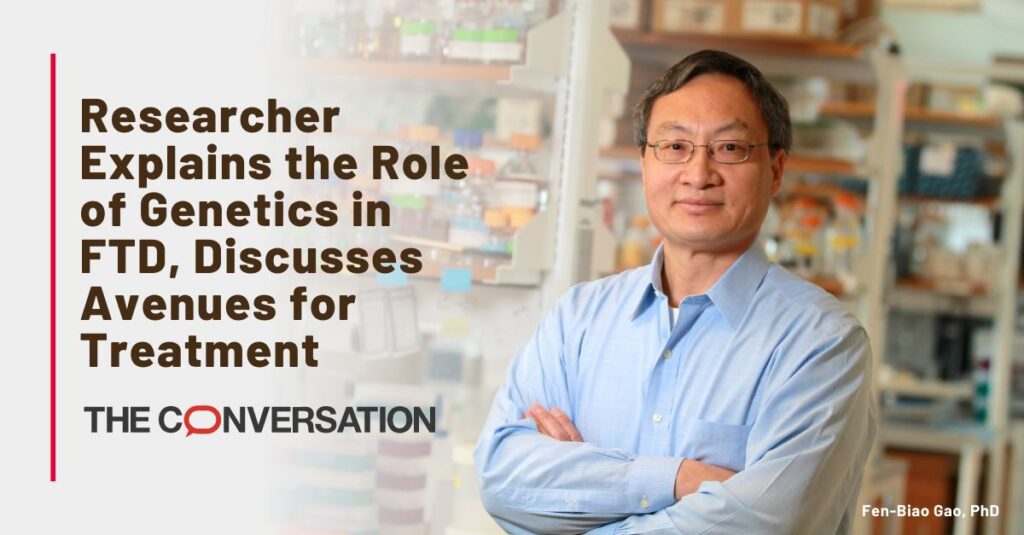Researcher Explains the Role of Genetics in FTD, Discusses Avenues for Treatment

In an article written for The Conversation, Fen-Biao Gao, PhD, professor and founding director of the FTD Research Center at the University of Massachusetts Chan Medical School, discusses how research into the genetic aspects of FTD has opened up potential avenues for treatment.
“Since researchers identified the first genetic mutations that cause FTD in 1998, more than a dozen genes have been linked to the disease,” Dr. Gao, a member of the AFTD Medical Advisory Council, says. “These discoveries provide an entry point to determine the mechanisms that underlie the dysfunction of neurons and neural circuits in the brain and use that knowledge to explore potential approaches to treatment.”
Because genes contain the blueprints used by cells to assemble the proteins that carry out the essential functions of life, mutated variants with altered blueprints can result in proteins that do not function normally or become toxic. For decades, researchers like Dr. Gao have studied how these mutated proteins contribute to FTD.
Some genes and proteins related to FTD can also cause ALS. Dr. Gao notes that the same gene variants causing FTD in one person could cause ALS in another, or even cause symptoms of both to appear together (referred to as ALS-FTD spectrum disorder). “Identifying these modifier genes in FTD, ALS, and other neurodegenerative diseases could lead to new treatment approaches by boosting the activity of those that protect against disease or suppressing the activity of those that promote disease,” he says.
Dr. Gao notes that the complexity of the brain makes it difficult to determine what causes the personality and behavior changes found in FTD. “Further research to understand the molecular mechanisms and brain circuitry behind FTD offer hope that its devastating symptoms, including behavioral and personality changes, will be treatable in the future,” Dr. Gao concludes.
There are many genes that are linked to FTD, which can be detected through genetic testing. AFTD strongly recommends first undergoing genetic counseling to consider whether genetic testing is right for you. If you have questions about genetic testing/counseling, contact AFTD’s HelpLine at 1-866-507-7222 or info@theaftd.org.
By Category
Our Newsletters
Stay Informed
Sign up now and stay on top of the latest with our newsletter, event alerts, and more…
